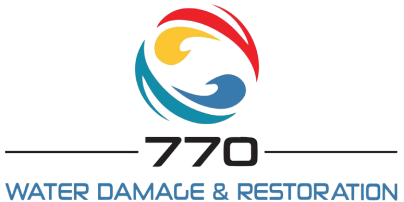The Hidden Costs of Water Damage
Water damage is a problem that can strike unexpectedly, leaving homeowners and business owners facing costly repairs and potential health hazards. While natural disasters like floods and storms are often the cause, everyday incidents such as leaking pipes, overflowing sinks, and faulty appliances can also lead to significant water damage. The aftermath can include structural damage, mold growth, and loss of personal or business property. However, many instances of water damage are preventable with proper precautions and regular maintenance.
In this blog, we’ll explore practical tips to help you prevent water damage in your home or business, ensuring your property remains safe and dry. At 770 Water Damage & Restoration, we believe that prevention is the best defense against the disruptions and expenses caused by water damage.
Understanding the Common Causes of Water Damage
1. Leaking Pipes and Plumbing Issues
One of the most common sources of water damage is leaking pipes. Over time, pipes can corrode, weaken, and eventually leak, especially in older buildings. Regular inspections and maintenance can help identify and address issues before they become major problems. It’s also essential to insulate exposed pipes to prevent them from freezing and bursting during cold weather.
2. Faulty Appliances
Appliances like dishwashers, washing machines, and water heaters can malfunction, leading to water leaks. Regularly checking hoses and connections for wear and tear can prevent leaks. Replacing old appliances with newer, more reliable models can also reduce the risk of water damage.
3. Clogged Gutters and Downspouts
Gutters and downspouts are designed to direct water away from your building. However, when they become clogged with leaves, debris, or ice, they can overflow, causing water to pool around the foundation. Regular cleaning and maintenance of gutters and downspouts are crucial to prevent water from seeping into the building.
4. Roof Damage
A damaged or aging roof can allow water to enter the building, especially during heavy rain or snow. Regular roof inspections and timely repairs can prevent leaks. It’s also wise to check for and repair any damaged shingles, flashing, or caulking around vents and chimneys.
5. Poor Drainage
Proper drainage around your property is essential to prevent water accumulation near the foundation. Ensure that the ground slopes away from the building, and consider installing drainage systems like French drains or sump pumps in areas prone to flooding.
Practical Tips for Preventing Water Damage
1. Install Water Leak Detection Devices
Water leak detection devices can alert you to leaks early on, allowing you to take action before significant damage occurs. These devices are especially useful for detecting hidden leaks in places like basements, under sinks, or behind appliances.
2. Regularly Inspect and Maintain Your Property
Routine inspections of your property’s plumbing, appliances, roof, and foundation can help identify potential issues before they escalate. Addressing minor repairs promptly can prevent major water damage down the line.
3. Maintain Proper Ventilation
Proper ventilation in areas like bathrooms, kitchens, and basements helps to reduce humidity and prevent mold growth. Use exhaust fans, dehumidifiers, and air conditioning to keep moisture levels in check.
4. Prepare for Severe Weather
During storm season, take extra precautions to protect your property. Ensure that windows and doors are sealed properly, and consider installing storm shutters. Keep an emergency kit and a list of important contacts, including your insurance company and a reliable water damage restoration service, readily available.
Stay Proactive and Prepared
Preventing water damage is all about staying proactive and prepared. By understanding the common causes of water damage and implementing these preventive measures, you can protect your home or business from the costly and disruptive effects of water damage.
